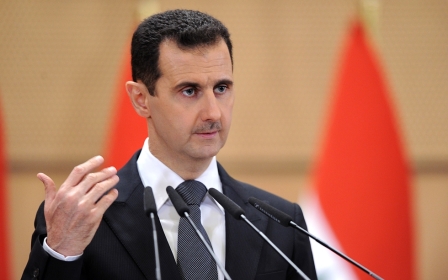Syrian political opposition says it supports Astana talks

The Syrian political opposition said Saturday it supports planned peace talks sponsored by Russia and Turkey in the Kazakh capital later this month.
"Concerning the forthcoming meeting in Astana, the [High Negotiations] Committee stresses its support to the military delegation ... and expresses hope that the meeting would reinforce the truce," an HNC statement said after a two-day meeting in Riyadh.
The HNC also expressed hope that the meeting would "establish a phase of confidence" through the implementation of UN Security Council Resolution 2254, especially articles concerning ending sieges of cities and towns, delivering aid and releasing detainees.
The HNC said it "appreciates efforts" to make the Astana talks fruitful, adding that the meeting represents a step that "paves the way for political talks" in Geneva next month.
The statement, which did not clarify whether the HNC has been invited to the Astana talks, stressed that "discussing the political track ... should be held under the UN sponsorship and supervision".
The HNC is the main Syrian opposition umbrella group and participated in previous peace talks in Geneva.
Despite backing opposite sides in the Syrian conflict, Russia and Turkey have worked closely in recent weeks to broker a nationwide ceasefire aimed at laying the ground for the 23 January peace talks in Astana.
The ceasefire and planned talks are the latest effort to negotiate an end to a conflict that has killed more than 310,000 people since it began with anti-government protests in March 2011.
Moscow and Ankara brokered a deal that allowed civilians and rebels to leave the opposition enclave in Aleppo before regime troops took full control of the city last month.
Middle East Eye propose une couverture et une analyse indépendantes et incomparables du Moyen-Orient, de l’Afrique du Nord et d’autres régions du monde. Pour en savoir plus sur la reprise de ce contenu et les frais qui s’appliquent, veuillez remplir ce formulaire [en anglais]. Pour en savoir plus sur MEE, cliquez ici [en anglais].




